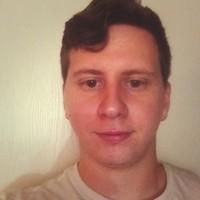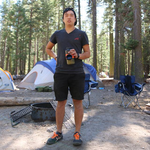Benny Chu, MA Spring 2018 (Social Psychology Emphasis), Current Position: Program Analyst, Kaiser Healthcare
In recent years I've held three positions in the Health Care Industry (Insurance, providers, call center)
- Consulting Research Analyst Associate (2.5 years)
- This role was particularly useful in terms of the development of explicit technical (SAS, SQL, Excel, etc) and soft consulting skills (Teaching people to ask the right questions, guiding people to an effective conclusion, etc).
- E.g., your clinical program is working, it's not statistically significant but it does trend financially positive.
- Software Development Engineer (.5 years,)
- Explicit data pipeline work to become more efficient and work at a broader audience.
- E.g., this should get you the data that you need automatically instead of you running a program every day.
- Senior Data Research Analyst (Current)
- This is probably my funnest route yet - I work entirely in operations guiding program-level changes AND create new metrics.
I spent some time thinking about the AR program and I could just create a list of things that I learned (Comparing two groups, R, Stats, theory/application) but anyone can do that - and it doesn't actually talk about how the AR program has played a role in my career development.
It seems like to me, the greatest thing that I walked away with is: "flexibly learn to critically evaluate and digest". I don't know if this is an overt skill that is taught in the classroom or in 1:1's. Rather, it's something that seems to be innate to the academic pathway/tutorship that I am only appreciating after the fact.
For example, my work consultations will likely have these phrases.
- "I don't know how to do that, but explain it again to me and I'll do some research"
- "It sounds like you want xxx, we don't have xxx right now, but let's get you xxy and xxz until we have more information"
- "Your job process is awful, but we can make it more efficient if you give me candy."
The common element here is the acknowledgment that I currently don't have skills or information necessary, but I'm not afraid of chasing after those things on my own/ with the support of others. I remember when I graduated from the program, I felt underequipped to deal with things that weren't explicitly taught in the program (Excel rules the world honestly) but it didn't take me long to think about how you all's might engage me to research things to find the answer.
Functionally, I'm saying that the AR program (and the professors/leaders who supported me) provided me with skills necessary to develop my own skills.
I've also honed some excellent baking skills

Yacoub Innabi, MA Spring 2019, Neuropsychology Emphasis
Current position: research cancer and stem cell regeneration in the Quantitative and Systems Biology PhD program at UC Merced.
Many aspects of the AR program have helped in my current research. For example, learning stats in R has helped me perform gene expression analysis.
I recently had a talk with my colleagues about how fast and loose biologists use statistics and often don’t control for bias, such as using blind controls. Many have also never heard of preregistration. I told them biologists can learn a lot from how psychologists are making amends for the replication crisis.
Also for my former position as an instructor (at Cal Poly Humboldt) and graduate TA, I learned from a certain professor at Cal Poly Humboldt, Dr. Gaffney, how to effectively engage students’ learning and participation. That was hands down the most excited I have ever been to show up to class.



